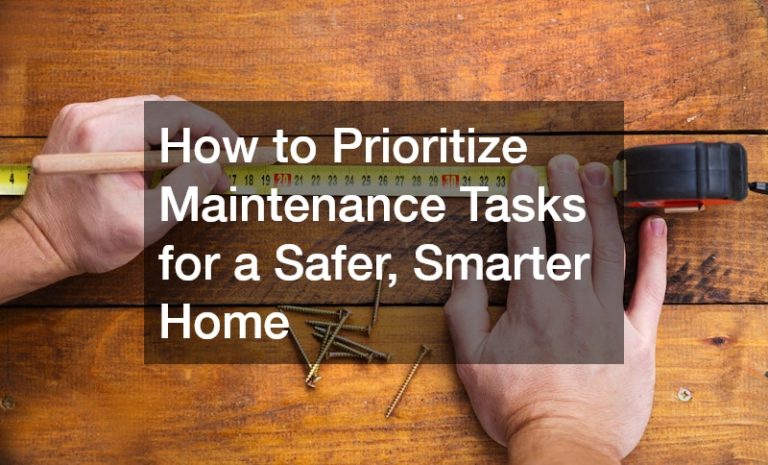

Before the mercury dips and the days get shorter, it’s a good idea to prepare your home for winter. While you can’t stop Mother Nature from sending cold temperatures and snow, you can protect your family from the ravages of frigid weather with these tips:
Insulate Your House

As you know, cold weather makes daily life a lot more difficult for many people. That’s why it’s so important to keep your home as warm as possible during winter. If you are in this situation, you know that the main issue is that most homes are not designed to retain heat. They don’t have insulation material in their walls or only have some in the attic, which is almost useless because it’s too far away from your living area. The best way to solve this problem would be to install some insulation material in your walls or ceiling. Indeed, this is what most people do when they want to insulate their homes properly. However, it’s understandable that not everyone can afford to do this. It’s a really expensive procedure because insulation materials are not cheap; if you don’t want to spend too much money on something necessary but not vital for your needs, you should try to find another less expensive solution. And this solution is to use blankets or quilts in your room. You have to hang them on the walls and cover the windows with thick curtains so that no cold air comes in when you open them.
Keep Drafts at Bay
Drafts can be defined as the uncontrolled flow of air through cracks and gaps in your home. This kind of leakage has many negative ramifications on you and your family’s well-being, comfort, productivity, and energy bills. It also provides the perfect supplemental source of heat for cold air. The biggest source of drafts in your home is likely to be the windows and doors. During winter, cold air gets indoors as a result of infiltration through these openings. The rate at which this happens depends on the existing infiltration and how much insulation the house has. An energy audit will help identify specific areas where drafts may exist and provide recommendations on how to improve them.
Maintaining continuous contact with a professional contractor is the only way you can be sure that you are getting quality services and products for your home or business at all times. Though it might be challenging to find one near you, it is not impossible. All you need to do is consult your friends and family members for referrals, look up local service providers on the internet or ask around at your local community center. This will help you find local contractors who are well-versed in your community’s requirements, expectations, and budget.
Lower Your Water Heater Temperature

As the weather turns colder, it is important to make sure you are prepared for potential cold weather. There are certain steps that homeowners should take in preparation for the winter months. One of these preparations as instructed by most companies dealing in heating and air installation is lowering heater temperature. When you lower, water heater temperature can help save energy, decrease cold-water pipe corrosion, and reduce the risk of accidental scalding. It is best to lower your water heater temperature to 120 degrees Fahrenheit or 49 degrees Celsius in preparation for the colder weather conditions. One factor that can cause problems in the colder weather is when homeowners turn on their faucets and are met with a flow of hot water. This is because many people leave the water heater temperature at 140 degrees Fahrenheit or 60 degrees Celsius, which would result in scalding if someone were to run the hot water while adjusting the sink or toilet temperature. A solution to this problem is lowering the water heater temperature, which will cause the hot water coming from your faucets to be at a lower temperature. Not only does this help prevent scalding, but it also saves energy because less energy is needed to keep the water hotter at lower temperatures.
A furnace filter acts as a defense system against airborne particles such as dust, pollen, and mold spores. A clean filter ensures that air is efficiently passing through it and not blocked by dirt or any other particles. Furnace filters can become extremely dirty over time, making them less efficient at protecting the furnace from airborne particles. The furnace fan works harder to pull air through the dirty filter, which can damage it. A clogged or dirty furnace filter not only makes your home environment uncomfortable but also reduces the energy efficiency of your furnace.
Cleaning your furnace/air conditioner filters once every month is an easy way to ensure they are working properly. You can achieve this by engaging one of the competent heating and air companies to help with the cleaning process. If you suspect that your filter is clogged or dirty (for example, if the furnace fan seems to be working harder than normal), take it out and check it. If you see dirt on the surface of the foam or metal filter, or if you can see through it easily, replace it with a new one. Clean furnace filters are especially important for those who suffer from allergies, as a dirty filter will have them sneezing and feeling run down very quickly. To ensure that you get quality service, it is advisable to hire a company that offers heating and cooling services. Prevention is always better than cure, and keeping your furnace filter clean will prevent unnecessary wear and tear on it, which will, in turn, reduce the costs of furnace repairs or replacements.
Maintain Your Heating System
A properly functioning heating system will ensure a warm and comfortable home, even during cold winter months. The most important preparation for cold weather is maintaining or performing heating repairs on your heating system, especially the boiler. If you have an old boiler, now might be a good time to seek the help of one of the residential heating repair companies to assist in getting it replaced with a more efficient and eco-friendly one. A boiler that is not working properly may produce insufficient heat; it might be producing too much or the wrong type of heat (heat transfer) for your home. To avoid having to wait for a heating repair, or worse yet, replacing your entire heating system during the winter months, it is recommended that you have your boiler serviced before the weather gets cold. As a safeguard, cleaning your heating system every year is also recommended. Doing so will help reduce the risk of carbon monoxide poisoning if there be an internal malfunction or clog within the boiler, resulting in incomplete combustion and the release of dangerous gasses.
Most importantly, having your heating system serviced will make certain that it is working safely and effectively. Service providers will check the boiler’s performance, components and controls, flue draft, combustion air supply, water levels, and safety devices. Routine cleaning of the heating system should also be done before the winter season.
Replace Old Windows with Energy Efficient Units

Double-paned windows, especially in older homes, can provide a significant amount of insulation. Replacing single-paned windows or even just the glass in an older window with double panes reduces energy costs by reducing over reliance on HVAC companies for HVAC services and products. Replacing old windows with energy-efficient units can prove to be a daunting task, but it can help homeowners save money on their heating bills. Homeowners concerned about rising heating costs may find it helpful to look to their replacement window options.
Energy-efficient windows can improve any home and help reduce the amount of heat lost during the winter months. Still, it is especially helpful when replacing single-paned windows in older homes located in colder climates. Replacing old windows is a good way to reduce energy costs and can be a fun project for homeowners looking to enhance the look of their homes with the help of ac install services. The expense of double-paned windows can be offset by the money saved on utility bills, but it is best to replace them during cooler weather to prevent drafts from entering the home. The work involved in replacing old windows can be a lot if not done carefully, but the benefits are worth the time and effort. Hiring a professional will help make the process easier for homeowners who do not feel like they have the necessary skills or tools to replace their windows.
Close Off the Rooms You Are Not Using
When you’re not using a room in your home, it’s important that you close off the room and shut all of the vents. This is to prevent cold air from coming into the house and prevent any heat from escaping out of the house. By closing off the rooms you are not using, you’re saving yourself money. When the cold air is kept out of the house, your furnace does not have to work as hard to keep the temperature at a comfortable level. If you do not want to close off specific rooms in your house, you can turn the vents up for that particular room to not allow any cold air inside the home through them. When you are using the room, turn the vents off again. Doing this simple task will help save money on energy costs throughout the winter months with very little effort.
Clean gutters help to maintain the beauty of your home’s exterior and help protect the foundation of your home. During the fall months, it is important to clean out your gutters. This will ensure that when winter comes around, there are no leaves or other yard debris in them, which could cause them to overflow and add water weight to the roof. Over time this will add up and can cause some serious structural damage to a home. Not only that but algae and mold can build up in the gutters and drain spouts over time.
Cleaning out your gutters is a simple process that only takes up about an hour from start to finish. It helps to work with another person since it can be hard to reach the very top of a home. One person should work from the ground and another from an extension ladder. The first step is to clear out the gutters and downspouts using either a leaf blower or garden hose. Push leaves and other debris into a pile that can then be bagged up for disposal. If you use the leaf blower, be careful not to damage them. Any algae or mold in your gutters need to be scrubbed out with a strong brush and garden hose. After this step, check each gutter and downspout for holes or leaks and repair as needed.
Seal All Cracks and Ducts in Your Home
One of the most important steps to take when preparing for the cold weather is to seal all cracks and ducts in your home. Cracks can let warm air escape making it difficult for you to stay warm while trying to keep the heating costs down. People often neglect this step, but it can be done quite easily with readily available materials at your local home center or hardware store. On the exterior of your house, check for cracks around window frames, where exterior walls meet roofs and soffits, doors, vents, and dryer exhausts. Caulk these areas when you find them using an acrylic latex caulk. You can also use spray foam in larger openings that need to be airtight. On the interior of your house, check where ceilings meet walls and in corners around windows and doors.
Fill these areas with canned expanding insulation foam. This foam is easy to apply and dries quickly. It expands on contact with the air, filling the gap in just seconds. It is better to hire a company that offers spray foam insulation service if you are not sure of how to go about it. Once you’ve sealed all cracks, take care of your chimney and fireplace by having them inspected for safety and using a metal mesh spark arrestor installed on top of the chimney where it meets the roof. Remember that any open flame or heat source can cause air infiltration, so proper venting is essential. Be sure to check the fire rating of all your doors and windows, caulk air leaks around electrical outlets, switches, and fixtures in attics, basements, and crawlspaces to reduce heating costs. A few simple steps will have your home ready for the cold weather while saving you money on your energy bills.
Winterizing your home for the cold weather months ahead is an often overlooked but important task. Taking the simple steps discussed in this article can save you from more costly repairs down the road and make sure your home is safe and comfortable all winter long.

